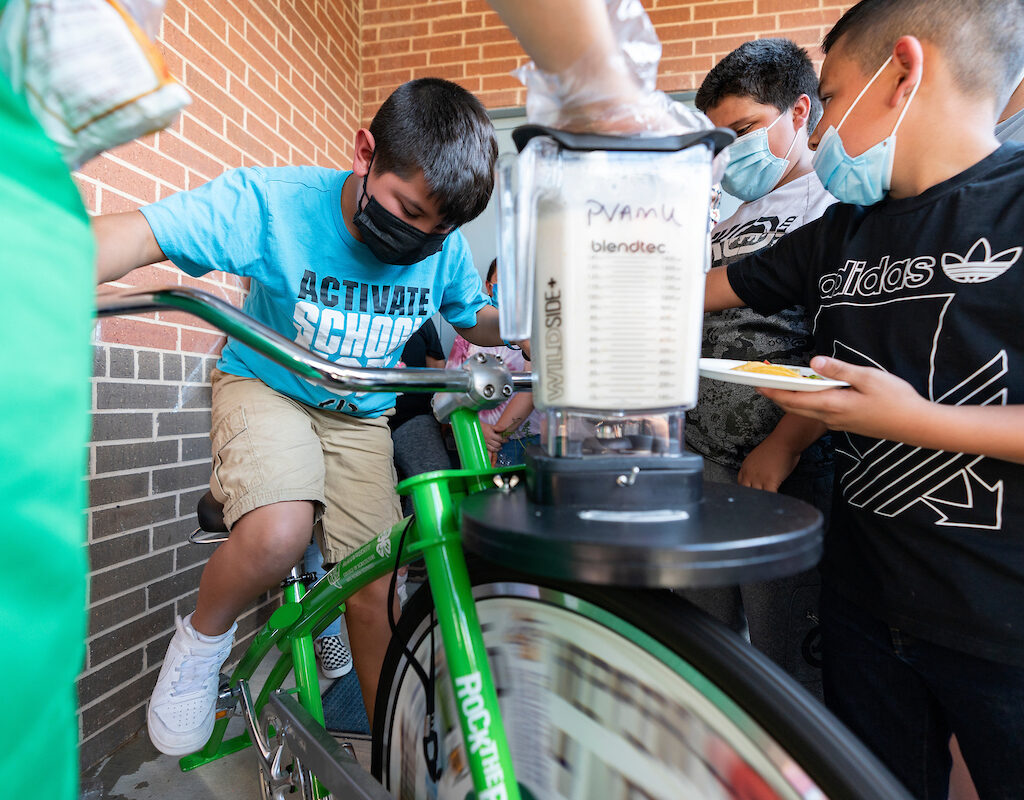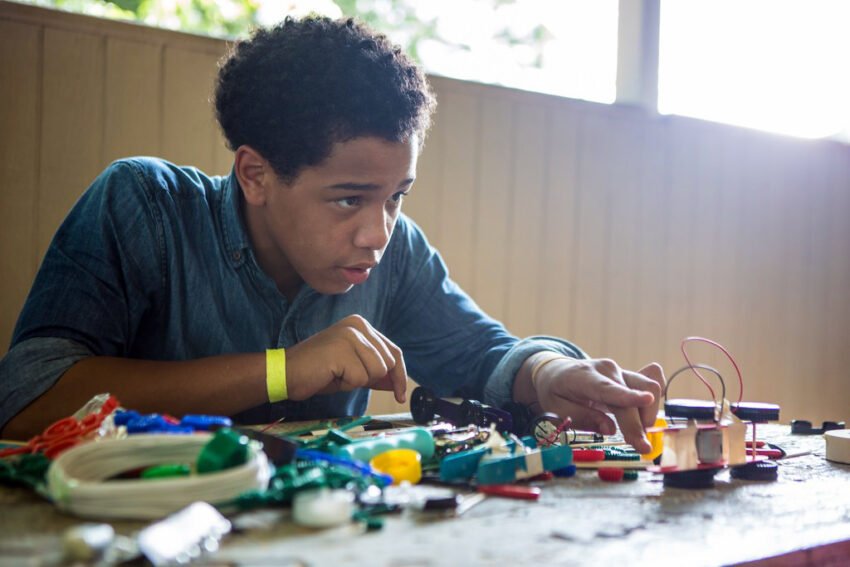4-H STEM
In the Science, Technology, Engineering, and Math project area, 4-H members learn about topics such as photography, rocketry, computer science, and much more. The opportunities are endless in STEM and our young people involved gain important life skills through unique experiences in this project.
Related Departments: Food Science & Technology, Nutrition

Texas 4-H Science, Technology, Engineering & Math Project

Learn About
4-H STEM
Programs
Courses
All Resources on 4-H STEM
- Course
Developmentally appropriate preschool STEM (science, technology, engineering and math) experiences give young children opportunities to develop divergent thinking, problem solving, and cause and effect. Experiences have great potential to affect brain development during the crucial early childhood window of opportunity.
- Course
Technology is everywhere! How can we prepare preschool-age children for a future that hasn’t been invented yet? Explore research and trends in technology to make the teaching and learning process more engaging. Discover strategies to help children learn science, engineering, and mathematics using more than just computers.
- Course
Children identify a problem, use stuff to make stuff that does stuff to solve the problem. Learn about research related to engineering design with preschoolers and ideas/activities to encourage and support children in becoming junior engineers. Planning, building, and testing out are the engineering skills of the future.
- Course
Preschool children are capable of understanding concepts of living and non-living things. Explore ways to support children’s observation skills related to the life sciences. Delve into inquiry-based learning activities to encourage critical thinking. Use STEM concepts to test theories on living things and non-living things.
- Course
Using inquiry-based learning, engage preschoolers in developmentally appropriate critical thinking about earth and objects in the sky, what happens during changes in the earth and sky and how children demonstrate care for the environment. Learn to guide children’s scientific thinking about light, shadows, sun and rainbows.